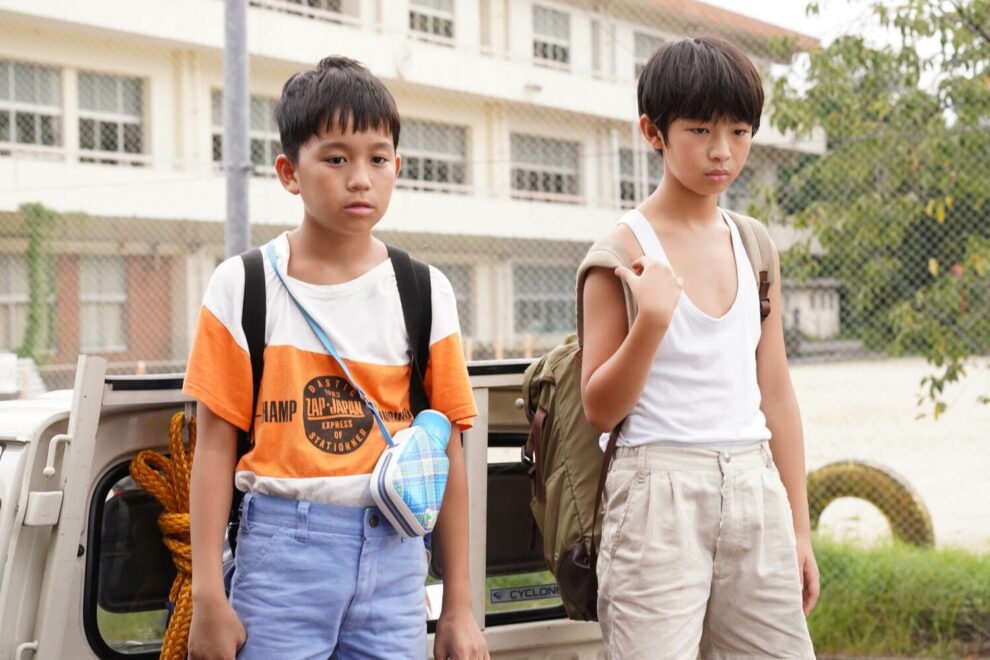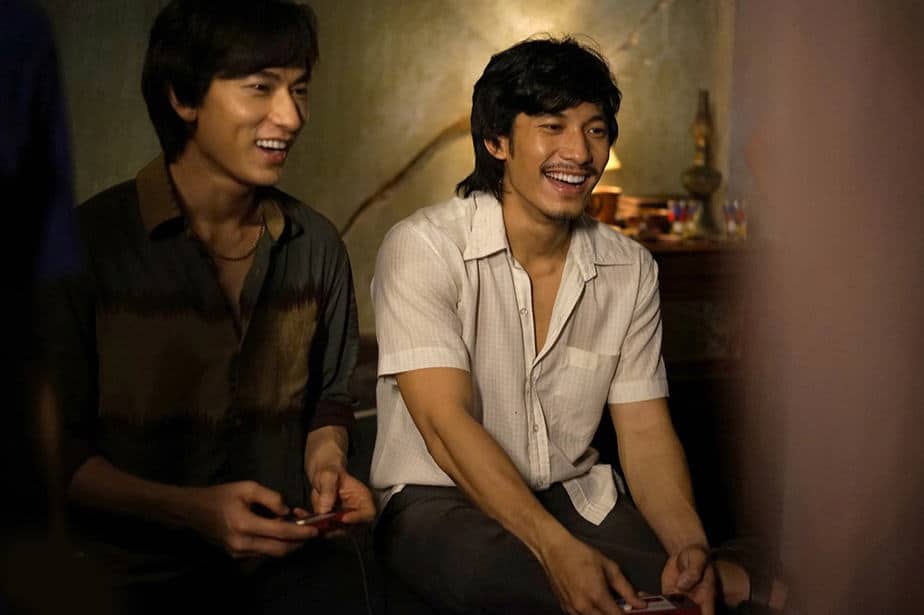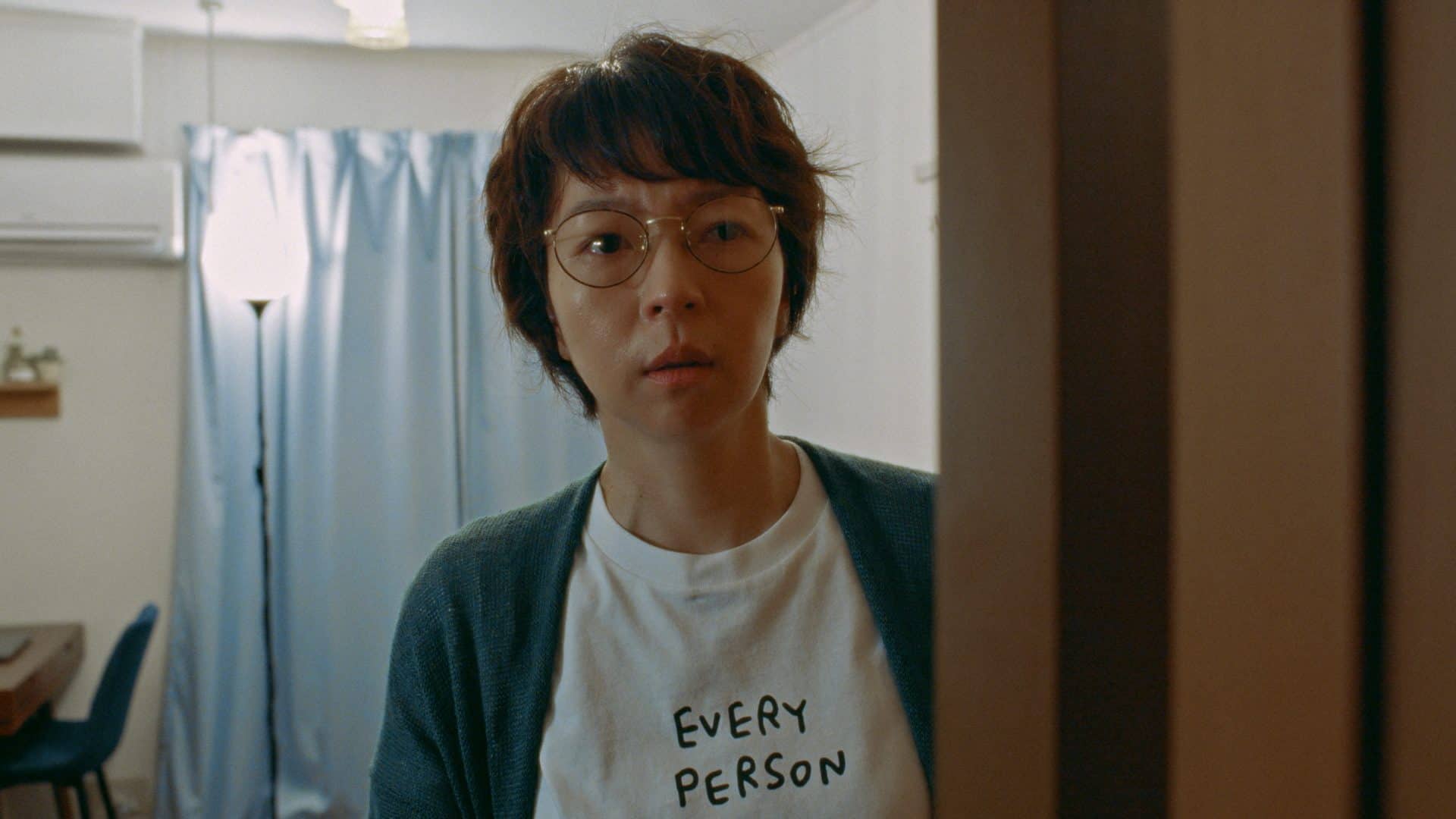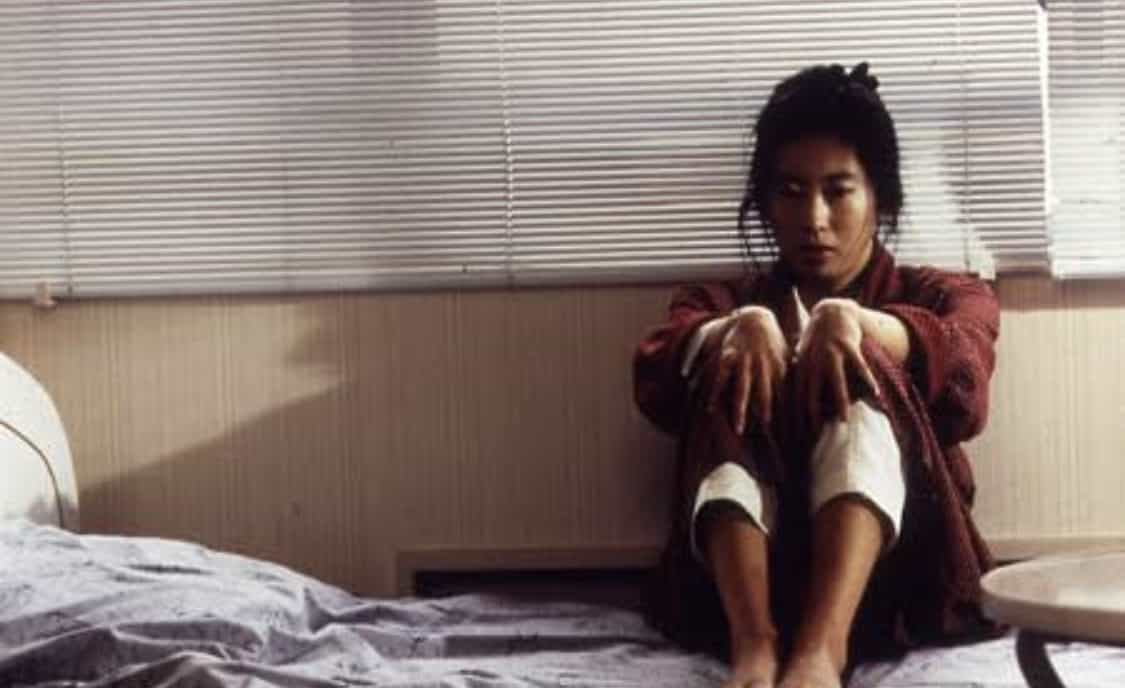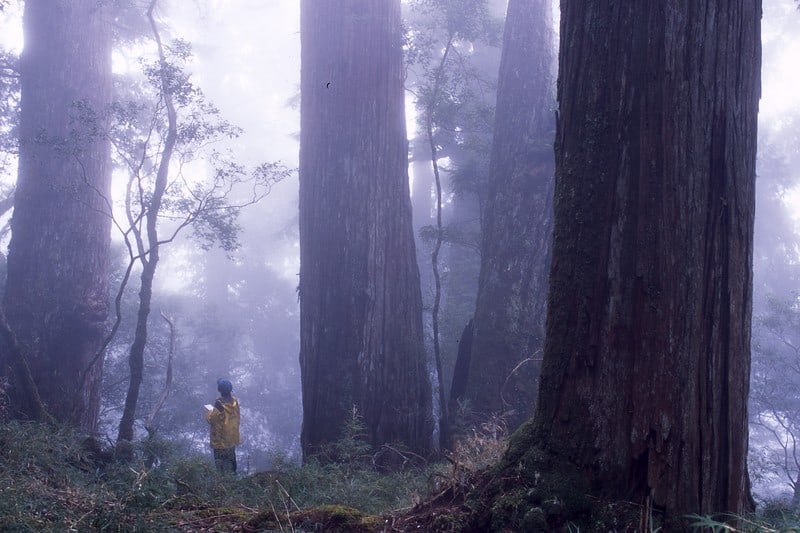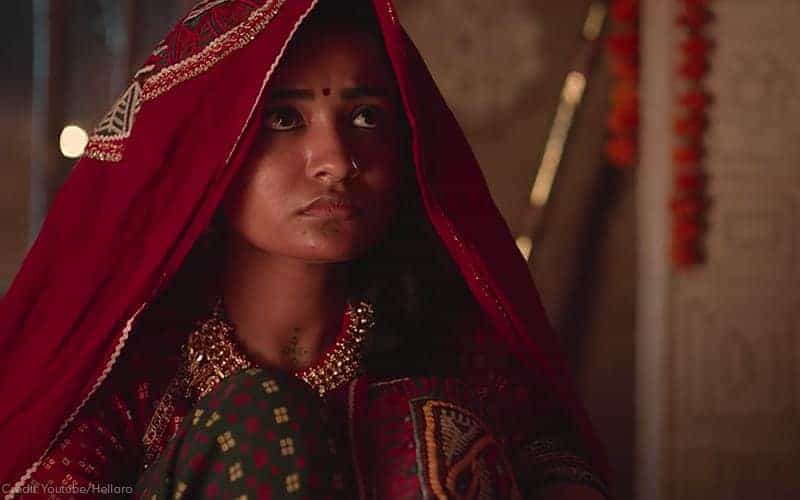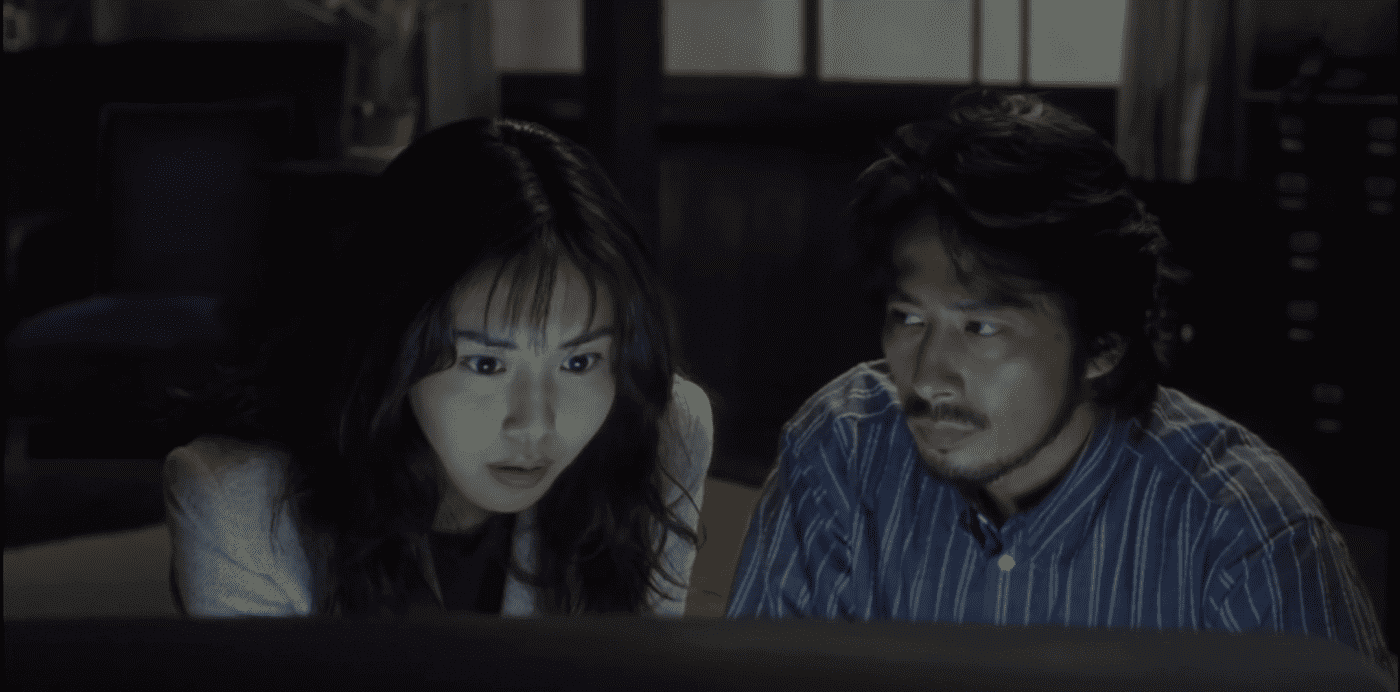It feels appropriate that Tomoki Kanazawa's “Sabakan” is set in the summer of 1986: the year Rob Reiner's “Stand By Me” was released. And while the two films end up very different, the Nagasaki-set family film starts with a very similar character dynamic.
Sabakan is screening at Camera Japan
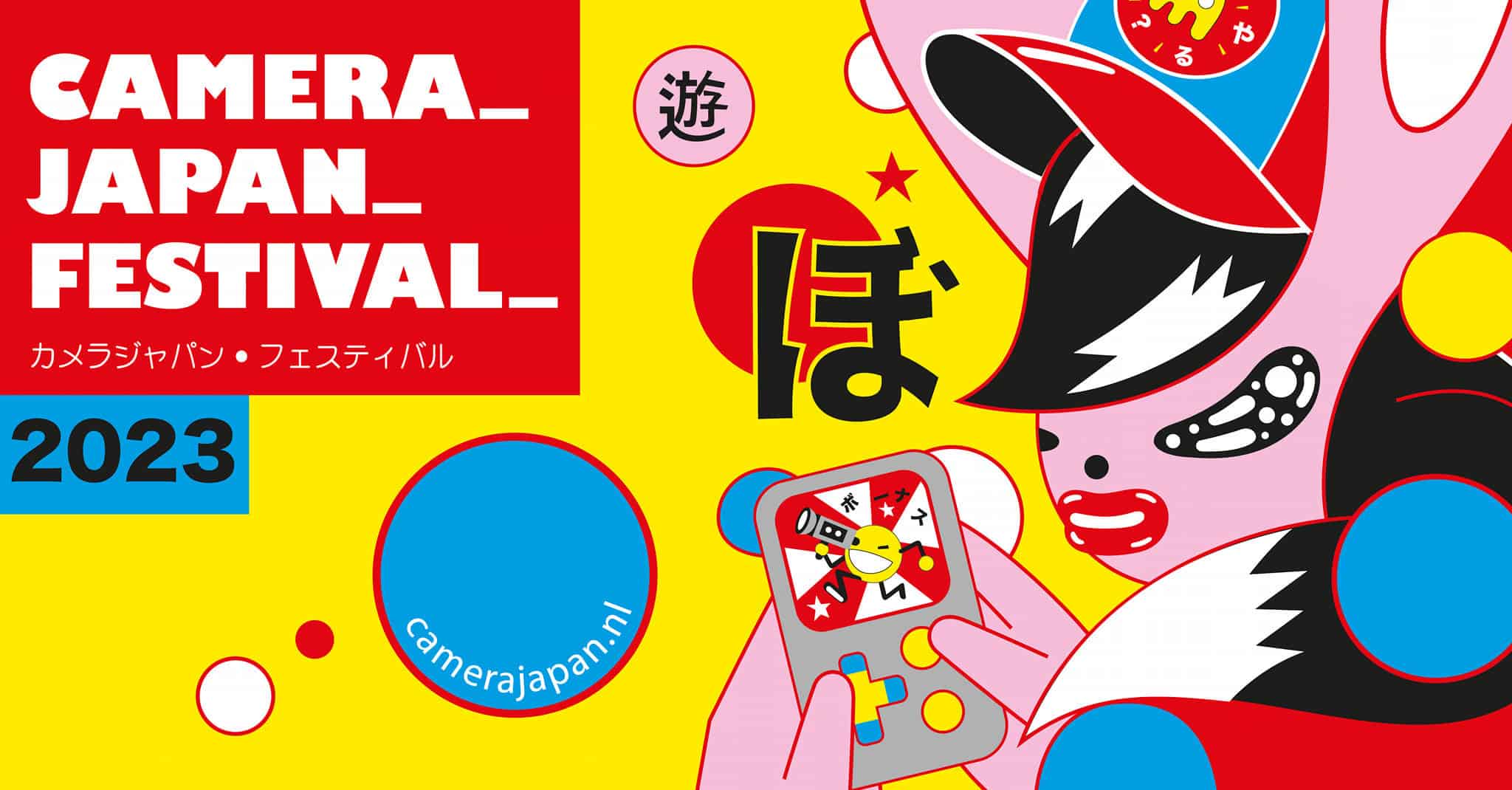
Takaaki (Tsuyoshi Kusanagi) is a struggling writer and divorcee. Suffering from writer's block, he reminisces about the summer of 1986, when a shared experience with a classmate had a lasting impact. Kenji (Konosuke Harada) is from a poorer background than most at school; the eldest of five siblings of a struggling widow. While others tease Kenji, Takaaki (the younger played by Ichiro Banke) remains straight-faced. A fact that Kenji notices.
Unexpectedly that summer, Kenji drops in on Takaaki to take him to nearby Boomerang Island, where there have been recent sightings of dolphins. Along the way, they encounter delinquents, with Kenji showing his inner-strength, before enjoying a fruitless, but rewarding adventure. But this is only half the story. The friendship blossoms, but on returning to school, anxieties creep in over their relationship, before tragedy strikes.
Check also this interview
For the first half, “Sabakan” perhaps lacks its own identity, working along similar lines of various other films you've seen before. This feels very much like a Hollywood coming-of-age family drama, with its use of incidental orchestral music – interestingly performed by the Budapest Symphony Orchestra – narration, idiotic adults and enigmatic outsider. But this standard family movie approach isn't such a bad thing. Takaaki's parents played by Pistol Takehara and Machiko Ono form a good double act, with slapstick in abundance. The bright landscape of Nagasaki also forms a good backdrop for a feel-good atmosphere.
It's in the second half that “Sabakan” comes into its own more. Rather than cutting the nostalgia at the end of summer, it's when the holiday is over and school returns that the story gains a darker edge. While friendships can be easily made over a summer, maintaining them isn't always as easy, particularly when young boys are concerned, with misunderstandings having indirect consequences.
This has elements aimed at both children and adults, though perhaps leans a little more towards the adult by the end. It has lots of slapstick and some erratic performances, but ends on a positive note; more as a story from the past, than a deep dive into nostalgia. Nothing is left to linger on the mind, which disappoints to an extent, but feels appropriate in the context.
Nagasaki is allowed to shine throughout, with its hills and coastline given plenty of screentime, and Yusuke Suga's cinematography offers some Ozu-like framing on closing.
Overall, this is a well-rounded family film, that goes on something of a journey itself. With something for everyone, this is an entertaining and enjoyable watch, but perhaps lacks a little something to recall years later.


